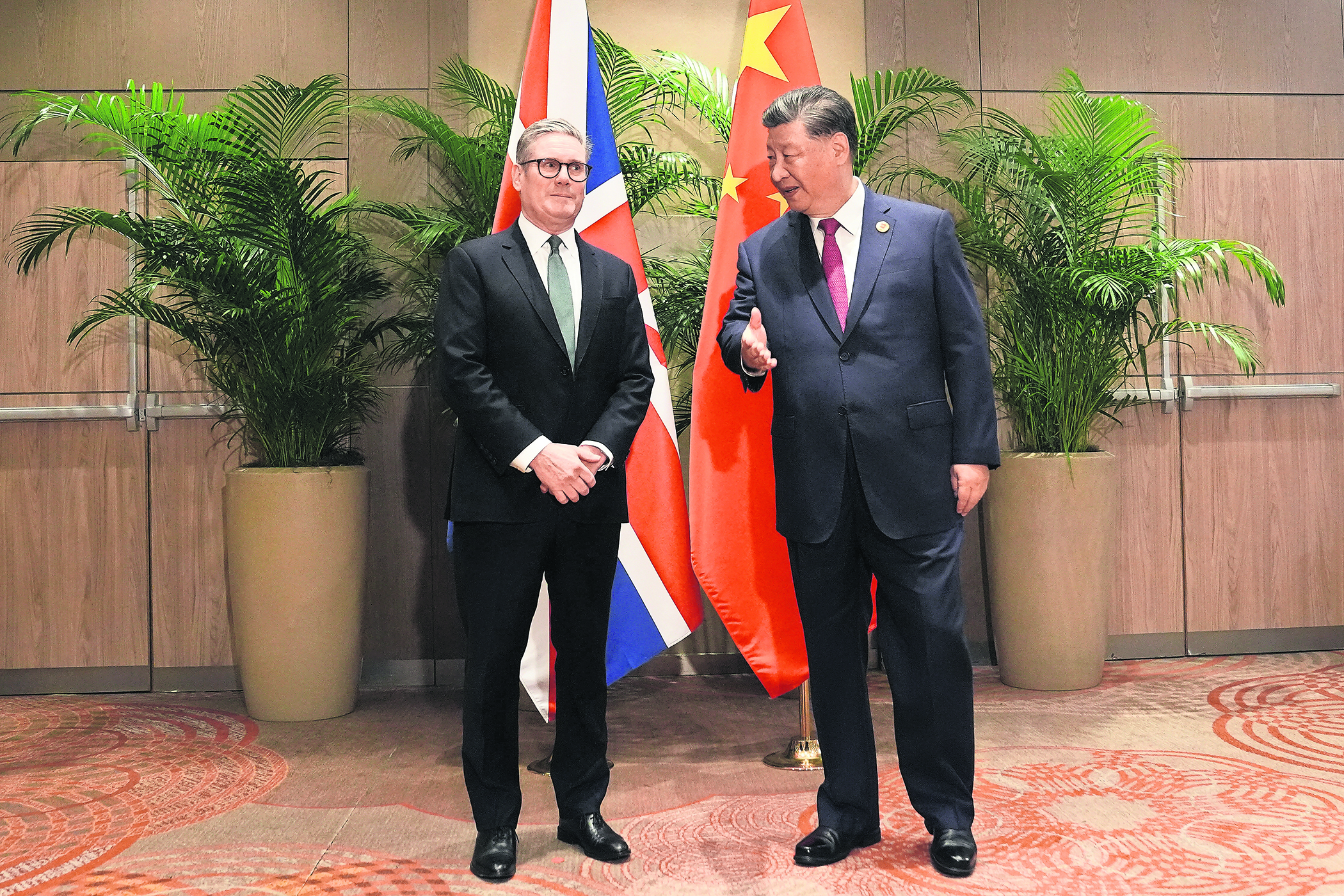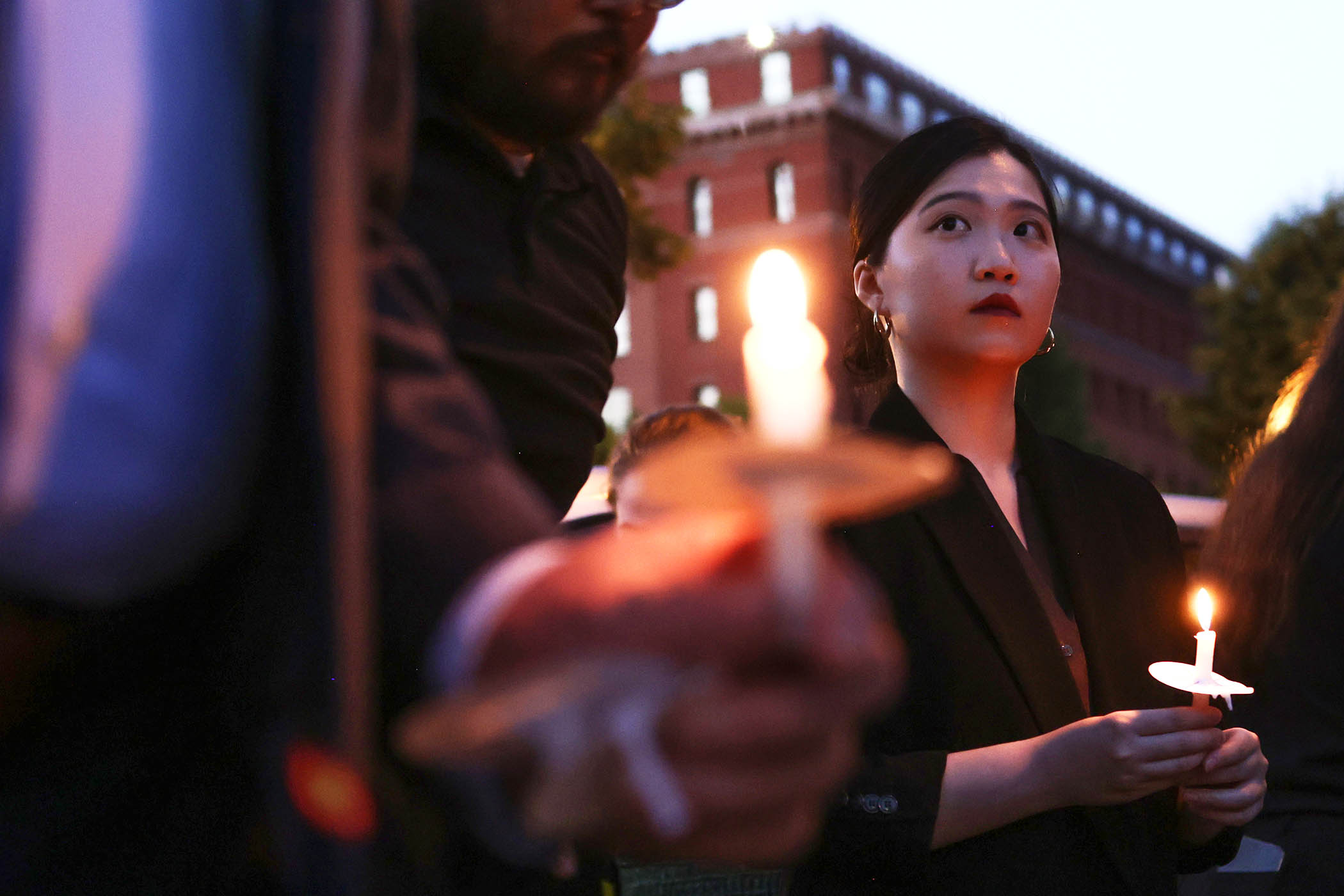It was, according to the intelligence services, a “slam-dunk” case: two suspected spies who penetrated the heart of the British establishment and allegedly passed politically sensitive information to China.
While a blame and counterblame game played out in Whitehall last week over the collapse of the case against Christopher Cash, 30, and Christopher Berry, 33, prosecutors now face fresh questions over exactly what information was passed to China.
Cash, a researcher and a director of parliament’s China Research Group, and Berry, who taught in Hangzhou, Zhejiang province, were charged with spying in April 2024.
Stephen Parkinson, director of public prosecutions, said in a letter to parliament last week that the spy trial collapsed because crucial testimony could not be obtained from the UK government describing China as a national security threat.
But an expert witness for the case this weekend told The Observer that prosecutors faced another hurdle: proving the information allegedly passed to China was so sensitive that it breached the Official Secrets Act.
Kerry Brown, director of the Lau China Institute at King’s College London and former first secretary at the British embassy in Beijing, who was due to appear as a defence witness, said he considered about “99%” of the material to be publicly available and the type of information that could be gleaned “from a subscription to Private Eye” or other media.
He said: “Some of this was just translations and some of it was cut-and-paste. A lot of things were from the British media. It was more like a copyright infringement than an espionage issue.”
Brown said he considered that “stronger evidence” might have been presented during the trial that he might not have seen. The Observer understands the prosecution did disclose all the available material to the defence team, which considered none of it could be reasonably described as prejudicial to the safety or interests of the UK.
There are mounting questions for the Crown Prosecution Service (CPS) as to why it considered the case offered a “realistic prospect of conviction” before establishing what testimony would be available about the UK view of China. It is also unclear why the CPS could not have pursued the case in the absence of testimony from the current government, instead relying on evidence on whether or not China was a threat during the period the pair were accused of spying, from 2021 to 2023.
The CPS also faces questions on the strength of the case against the two men, the exact material passed to the Chinese that was considered politically sensitive and any involvement of officials or ministers in the decision to withdraw it.
Newsletters
Choose the newsletters you want to receive
View more
For information about how The Observer protects your data, read our Privacy Policy
In his correspondence last week explaining how the case was scuppered, Parkinson cited a high court ruling that examined the definition of “enemy” under the Official Secrets Act. However, the judgment lowered the threshold for a successful case, rather than raising it.
‘A lot of the material was from the British media. It was more of a copyright issue than espionage’
‘A lot of the material was from the British media. It was more of a copyright issue than espionage’
Kerry Brown, expert witness
It was claimed a Chinese intelligence agent had commissioned at least 34 reports from Berry, with politically sensitive information passed to a senior member of China’s politburo, named by the Guardian as Cai Qi.
The CPS alleged that 10 of these reports would have been useful to the Chinese state and “prejudicial to the safety or interests of the state”. Berry has said he believed the reports, which incorporated information from Cash, were commissioned by a consultancy. Berry and Cash deny any wrongdong.
When the case collapsed last month, Henry Blaxland KC, who represented Cash, told the court: “The prosecution’s decision to proceed against [Cash] was ill-judged. We are entirely confident that if the case had proceeded to trial… it would have become apparent that there was no case for him to answer.”
One crucial piece of evidence in the case was reported to be £600 of payments in Cash’s bank accounts, which police believed was a possible reward to supplying information to China.
The Times reported last week that it was later established the money was for separate work on translation services and any reference to financial inducements was removed from the case papers.
The collapse of the case has alarmed MPs. Iain Duncan Smith told the Commons said last month: “I was briefed by the security services at the beginning that this was a slam-dunk prosecution.” Luke de Pulford, executive director of the Inter-Parliamentary Alliance on China, a group of lawmakers critical of Beijing, said he believe information allegedly passed to China could have undermined the UK. He said “mapping out” the MPs concerned at China’s rise would be “useful for a regime trying to diminish critical activity”.
Cash and Berry were arrested in March 2023 at a time of heightened alert over China, with a government defence review in the same month describing the country as “an epoch-defining challenge”.
Keir Starmer’s national security adviser, Jonathan Powell, is under increasing pressure over the case after claims from the CPS that it tried for months to get evidence from officials on the Chinese threat to security. Starmer last week denied ministerial involvement in any of the decisions involving the evidence put before the court.The case is the latest controversy over claims of China’s alleged clandestine operations in Britain. In December last year, a suspected Chinese spy who was described as a close confidant of Prince Andrew was named as Yang Tengbo. He denied the allegations against him. Britain has in recent years excluded Chinese companies from key parts of the national infrastructure, including a decision to ban Huawei from the UK’s 5G networks in 2020. Prof Steve Tsang, director of the China Institute at Soas University of London, said it would be “bonkers” not to engage with China, but the UK needed to be clear-eyed about the risks. He said: “If we think that China is a benign, benevolent, friendly partner to us, then we're deluding ourselves.”
The CPS said it had nothing to add to the letter Parkinson wrote to parliament. The Chinese embassy has been contacted for comment.
Photograph by Stefan Rousseau/AFP/Getty



